Martín de Porres Velázquez OP
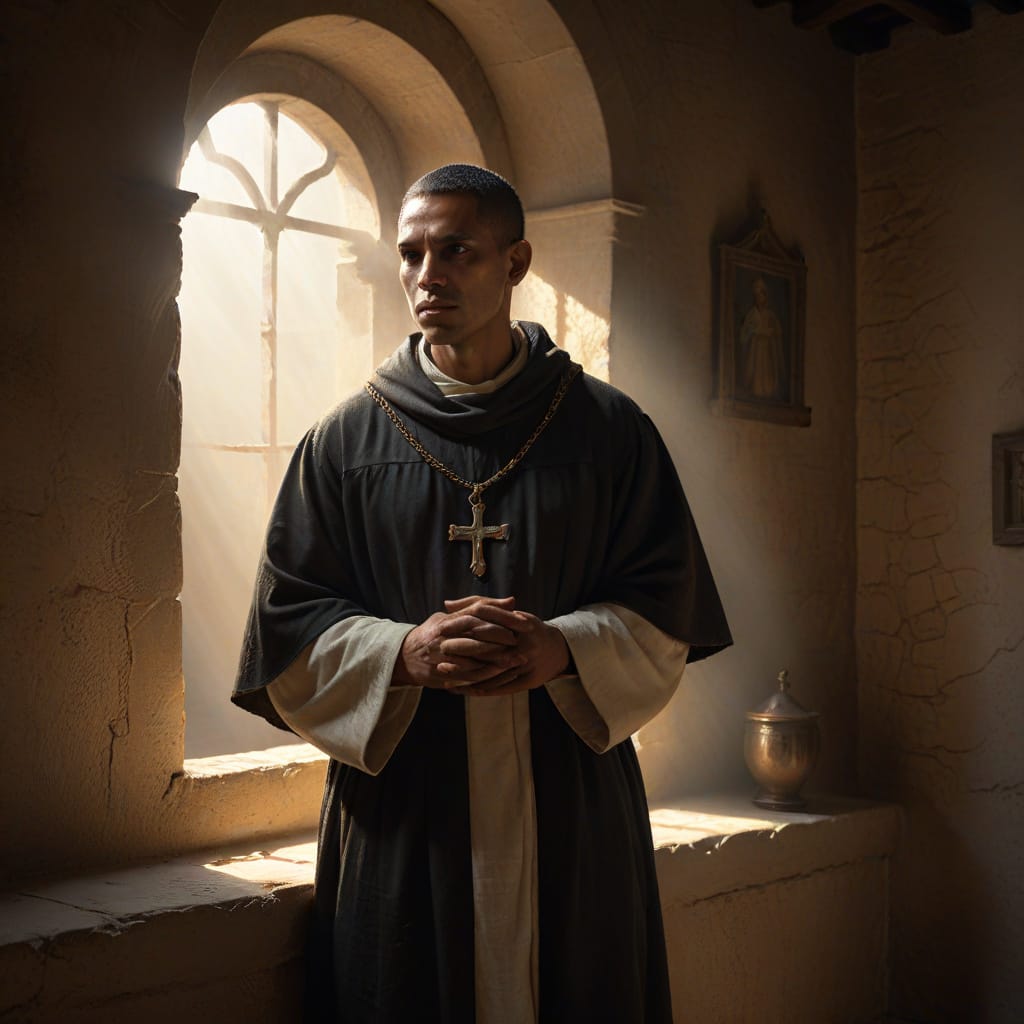
Martín de Porres Velázquez OP (9 December 1579 – 3 November 1639) was a distinguished Peruvian lay brother within the Dominican Order. He was beatified in 1837 by Pope Gregory XVI and later canonized in 1962 by Pope John XXIII. He is recognized as the patron saint of individuals of African descent, mixed-race communities, barbers, innkeepers, public health professionals, advocates of racial harmony, and animals.
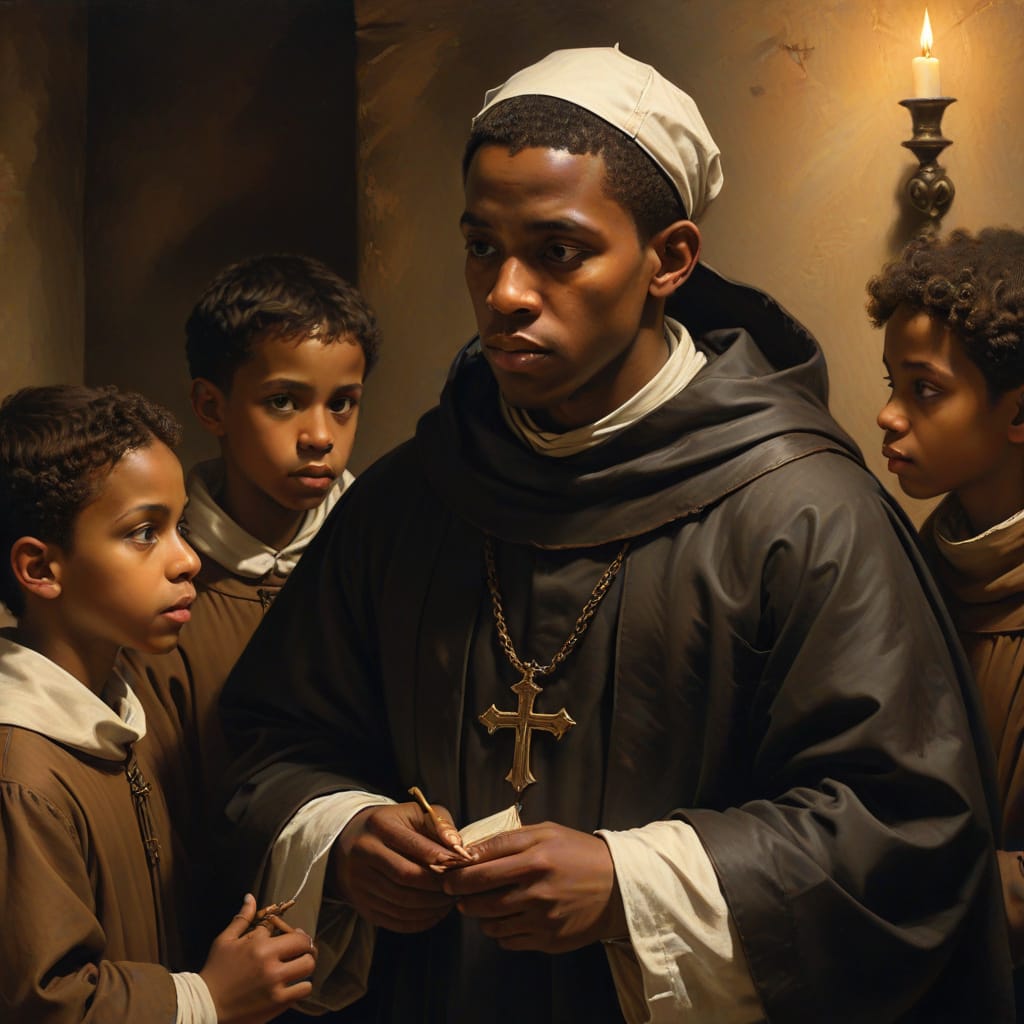
Throughout his life, he was dedicated to serving underserved populations, including establishing an orphanage and a children’s hospital. He practiced a lifestyle of simplicity and discipline, which included fasting and abstinence from meat. Various accounts attribute to him extraordinary phenomena such as levitation, bilocation, miraculous knowledge, rapid healing, and a special ability to communicate with animals.

Martin was born in Lima, Viceroyalty of Peru, Spanish Empire, on December 9, 1579. He was the illegitimate child of Don Juan de Porras y de la Peña, a Spanish nobleman, and Ana Velázquez, a woman of African and Native descent who was formerly enslaved. He had a younger sister named Juana de Porres, born in 1581. Following her birth, their father ceased to provide support for the family. Ana Velázquez supported her children through laundry services. Growing up in modest circumstances, Martin attended primary school for two years before being apprenticed to a barber surgeon. As he matured, he devoted increasing time to prayer and reflection.
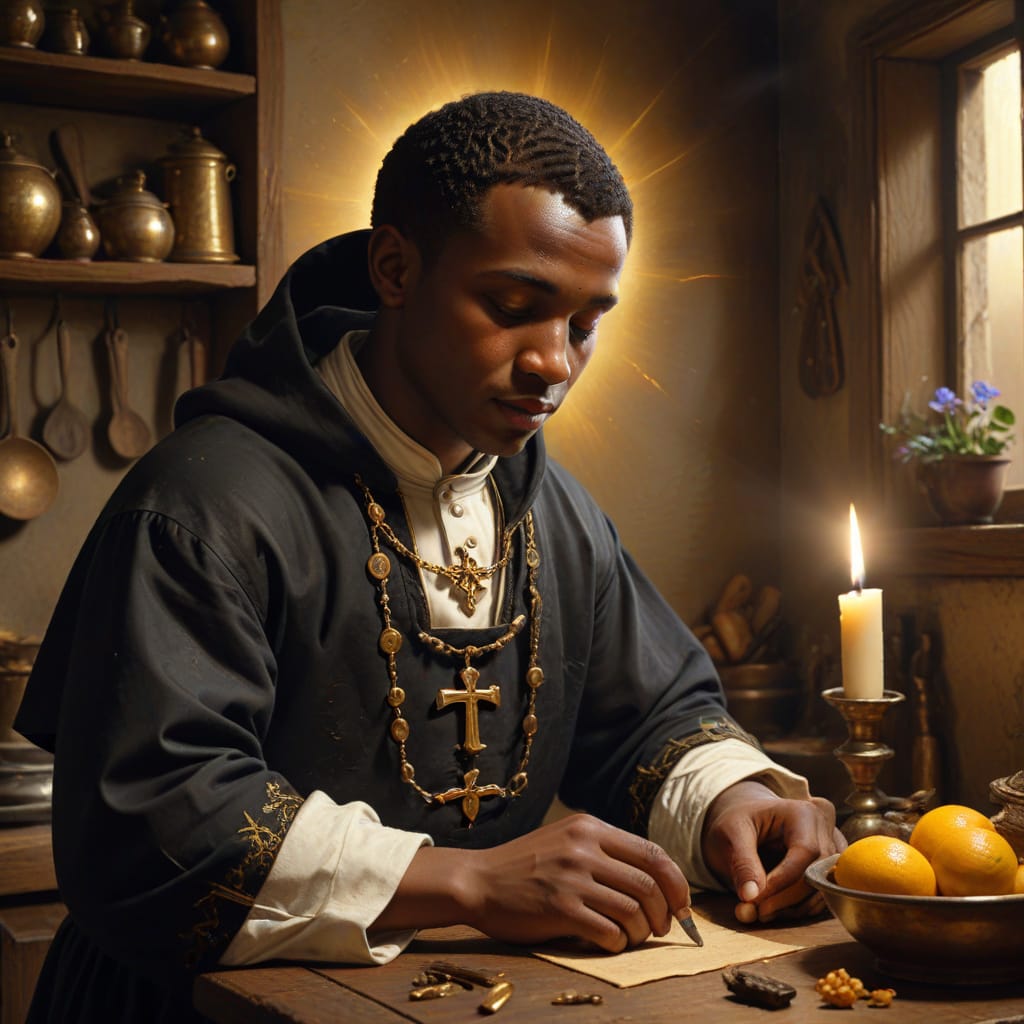
Martin continued to practice his previous trades of barbering and healing, during which he was reputed to have assisted many individuals through notable healing responses. Additionally, he undertook domestic tasks such as kitchen work, laundry, and cleaning. After eight years at Holy Rosary, Prior Juan de Lorenzana decided to formally approve Martin’s candidacy to take religious vows as a member of the Third Order of Saint Dominic, effectively granting him special dispensation. Holy Rosary housed approximately 300 men; however, not all residents agreed with Prior de Lorenzana’s decision. Some individuals engaged in unprofessional conduct, including one novice who referred to Martin disrespectfully, and one priest who made inappropriate remarks questioning his background.
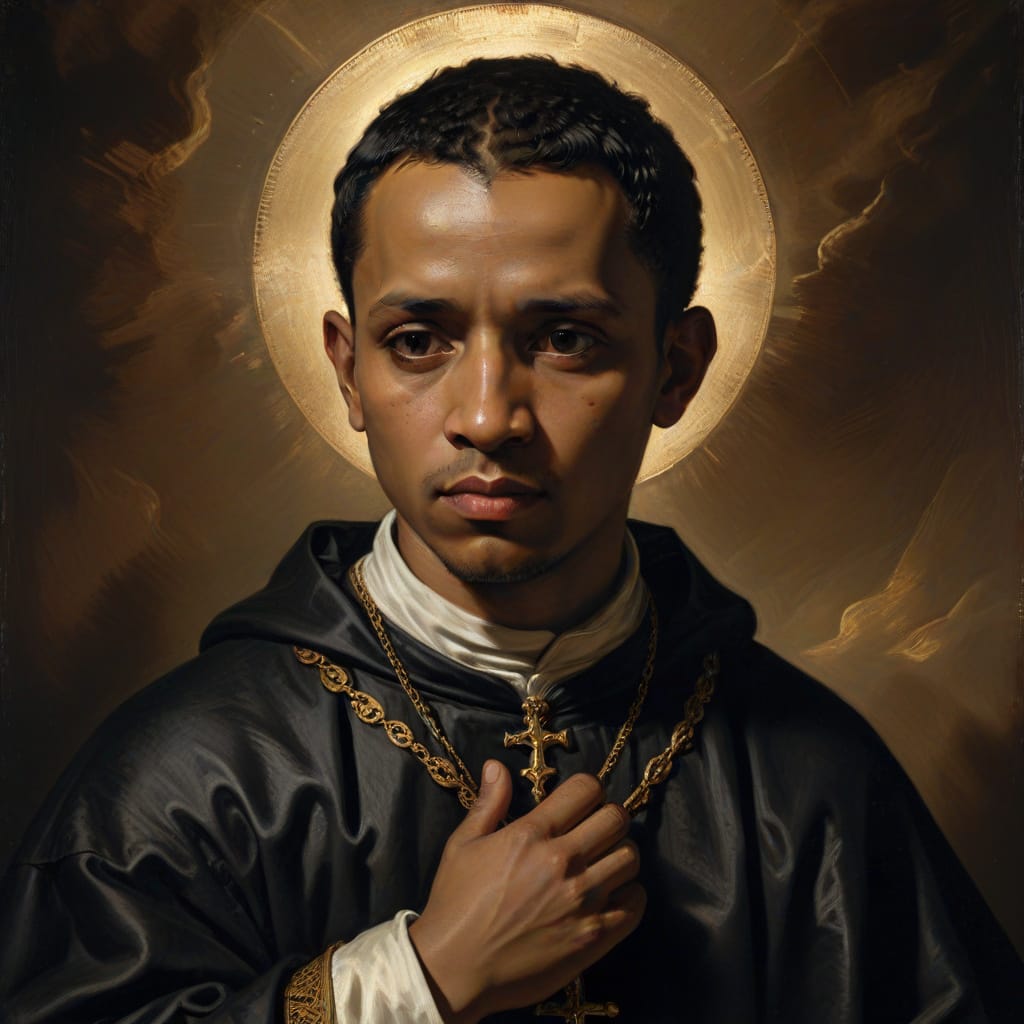
At the age of 24, in 1603, Martin was permitted to take religious vows as a Dominican lay brother. It has been reported that he multiple times declined this higher level of ecclesiastical commitment, possibly influenced by his father’s intervention, and ultimately did not attain the priesthood. There are accounts indicating that during a period of financial difficulty within his convent, he earnestly requested permission to be sold, saying, “I am only a poor mulatto, sell me.” Martin exhibited a profound reverence for the Blessed Sacrament; on one occasion, while praying before it, the step of the altar on which he knelt unexpectedly caught fire. Despite the ensuing chaos, he remained in place, immersed in his prayer, seemingly unaware of the surrounding events.
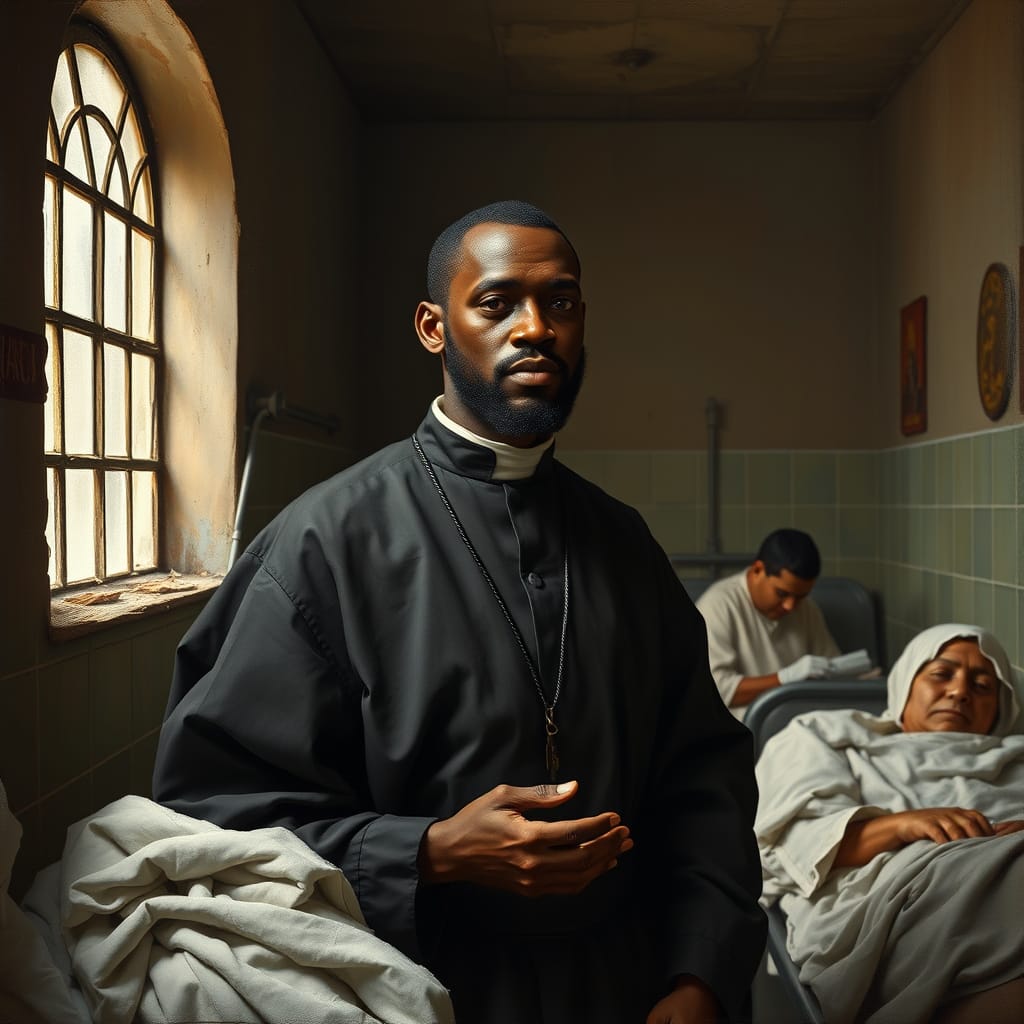
At the age of 34, after receiving the religious habit of a lay brother, Martin was appointed to oversee the infirmary, a position he held diligently until his passing at age 59. He was widely recognized for his compassionate care of the sick. His supervisors acknowledged his possession of the virtues necessary to demonstrate remarkable patience in this demanding role. Subsequently, numerous accounts of his extraordinary deeds became known.
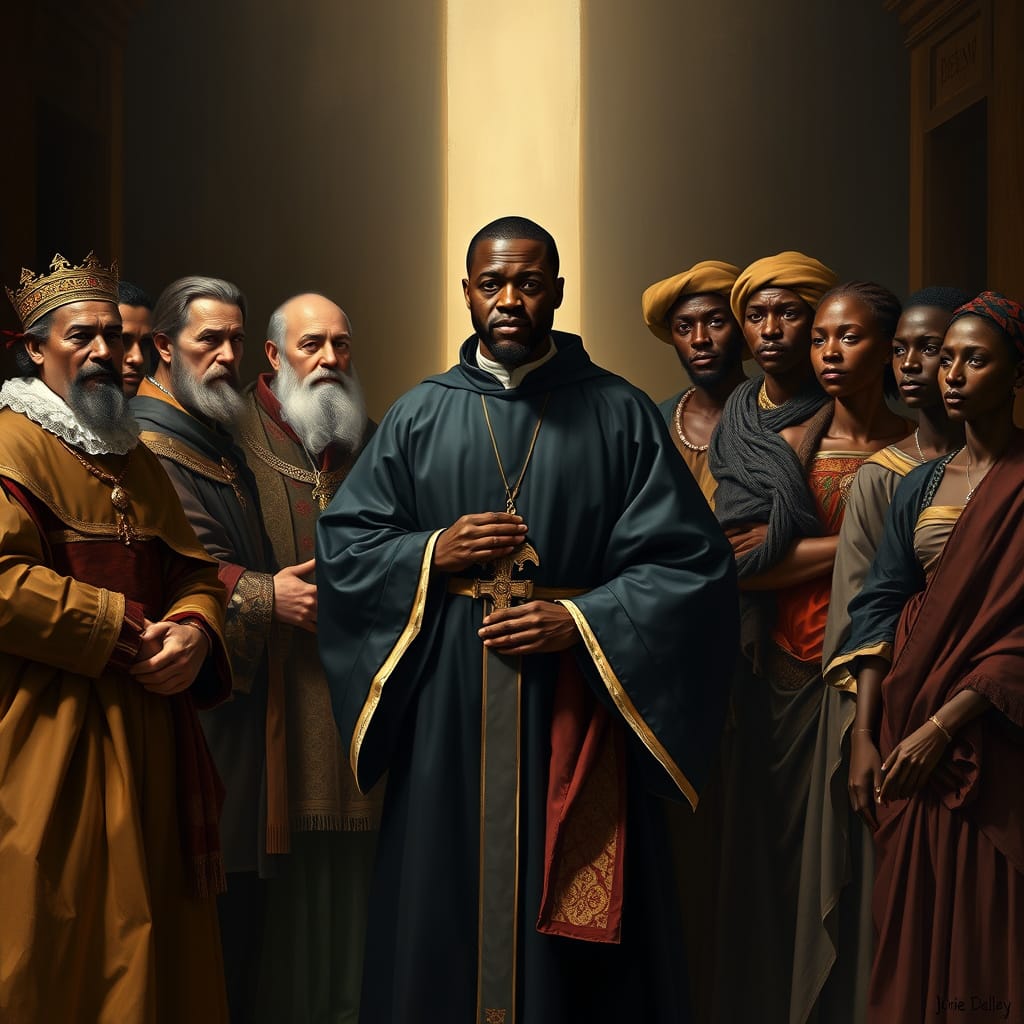
Martin extended his care beyond the confines of the convent, often providing healing with simple acts such as offering a glass of water. He served individuals regardless of social status, caring for both Spanish nobility and recently arrived African slaves.
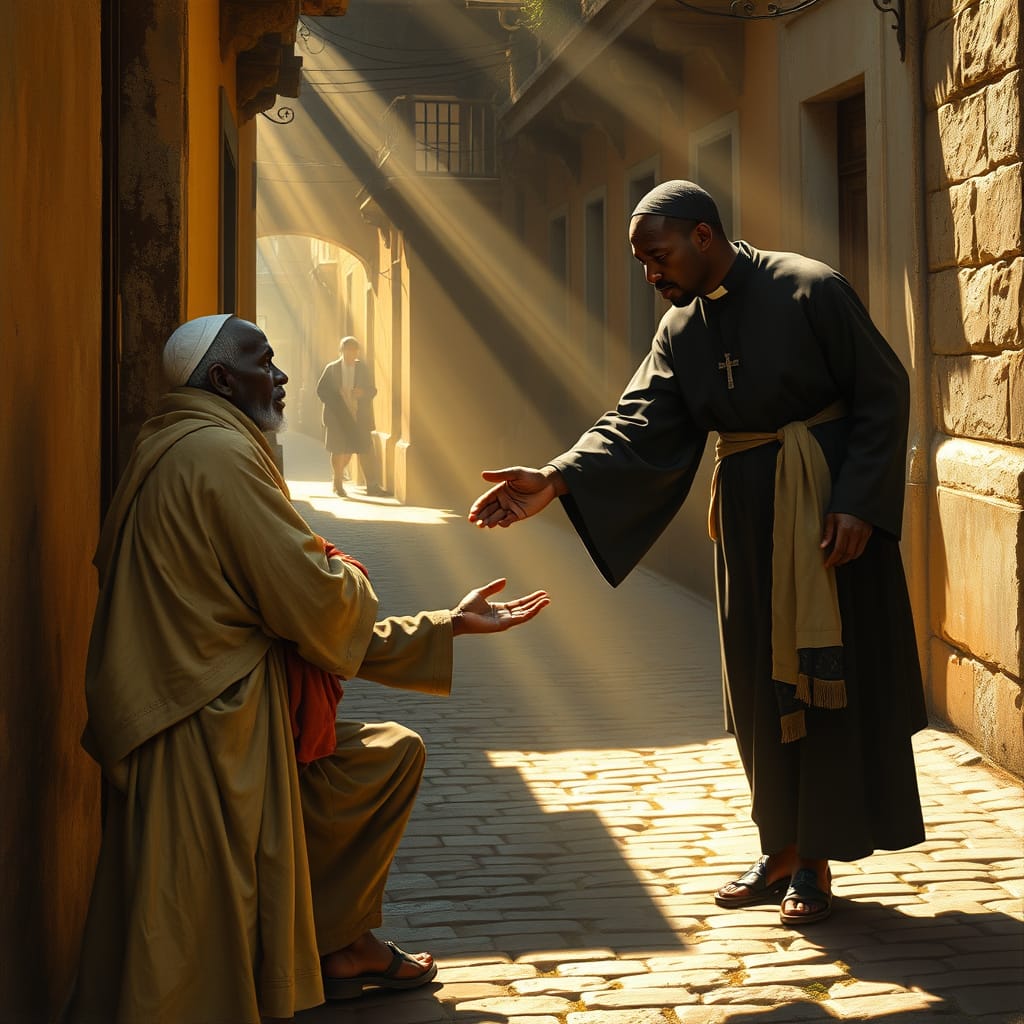
On one occasion, an elderly beggar, afflicted with ulcers and nearly unclothed, extended his hand, and Martin graciously allowed him to use his own bed. When a fellow brother questioned his actions, Martin responded: “Compassion, my dear Brother, is preferable to cleanliness.”
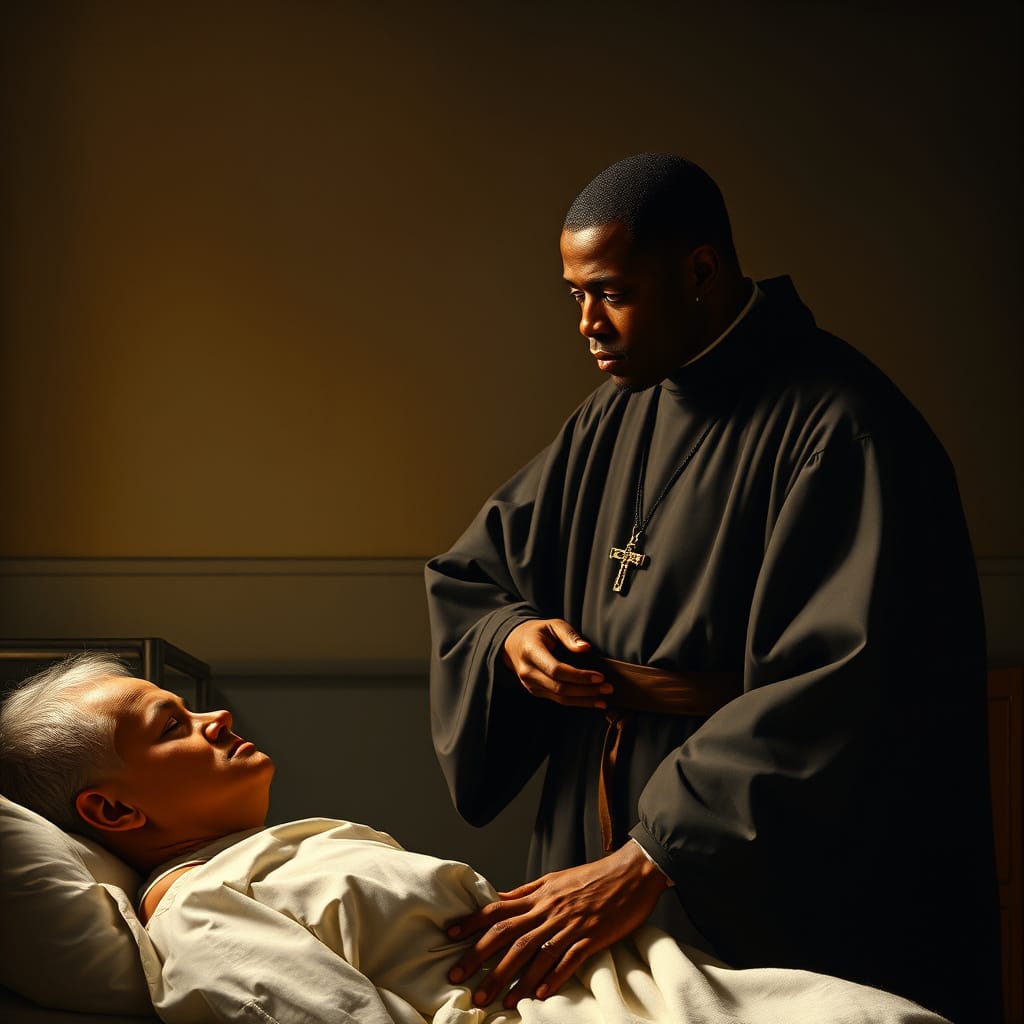
During a period of epidemic in Lima, the Convent of the Holy Rosary accommodated sixty friars who were afflicted with illness, including many novices housed in a separate and secured section of the convent, isolated from the professed members. Reports indicate that Brother Martin was known to have entered through locked doors to tend to these sick individuals, an event that was documented multiple times within the residence. It was also observed that he appeared spontaneously among the bedridden, without any apparent means of entry. Brother Martin continued his efforts to transport the ill to the convent until the provincial superior, concerned about the risk of contagion, prohibited him from doing so. His sister, residing in the countryside, generously offered her residence to accommodate those whom the convent could not host.
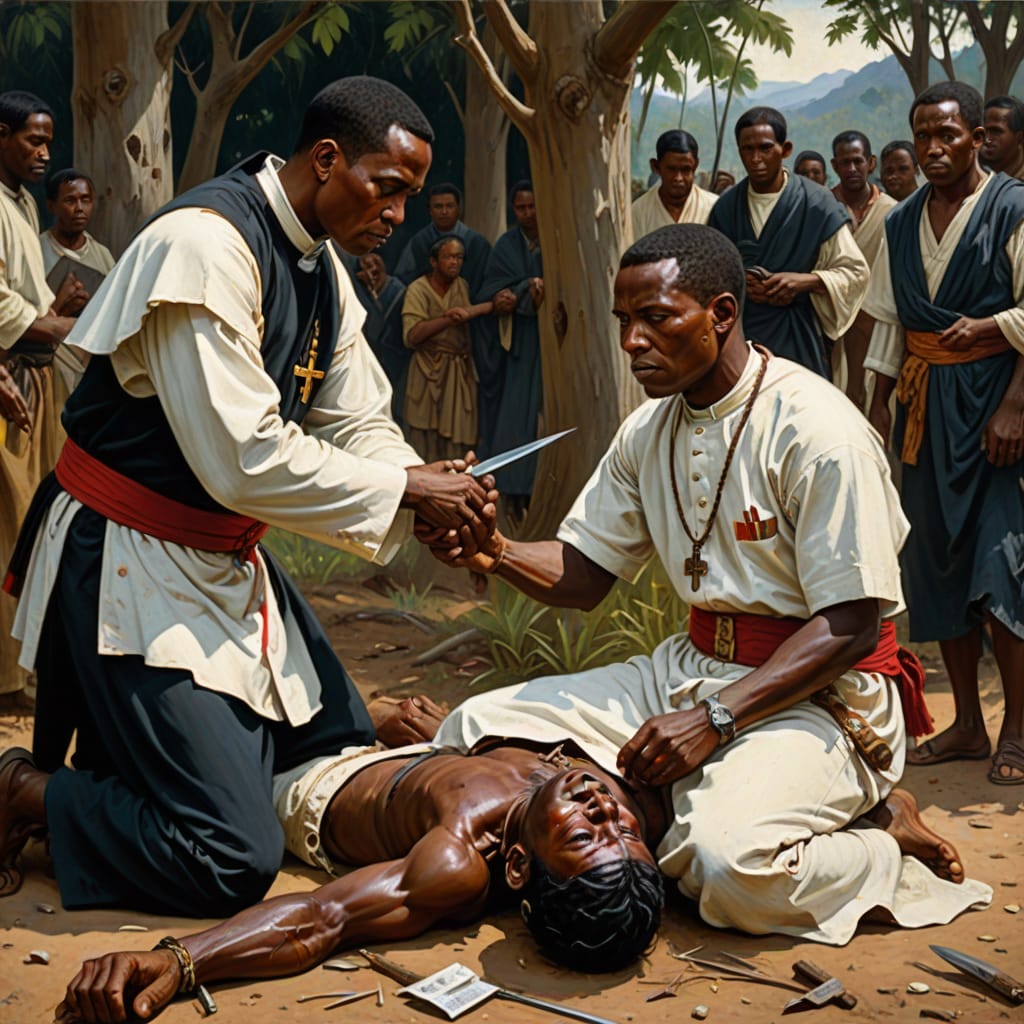
On one occasion, Brother Martin encountered a poor indigenous person suffering from a severe dagger wound. He brought the individual to his personal chamber until arrangements could be made to transfer him to his sister’s hospice. The prior of the convent reprimanded him for this act of disobedience; however, Brother Martin was greatly inspired by his response: “Please forgive my oversight, and kindly guide me, for I was unaware that obedience should take precedence over charity.” Following this incident, the prior permitted him to act according to his compassionate impulses.
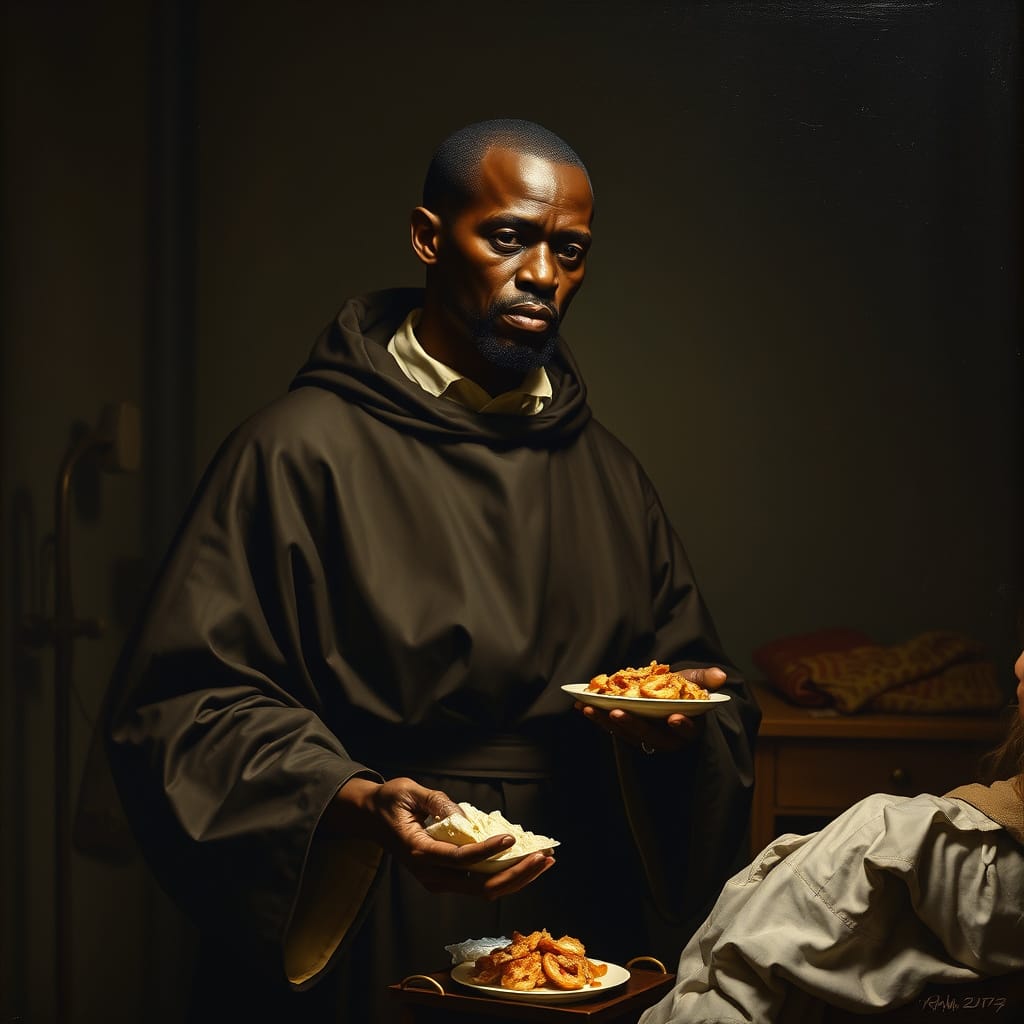
Brother Martin abstained from consuming meat. He sought alms to obtain essentials that the convent could not supply. Under normal circumstances, he successfully raised sufficient funds to provide for the daily needs of approximately 160 poor persons and distributed significant amounts of money weekly to the impoverished. In addition to his daily duties in the kitchen, laundry, and infirmary,

Brother Martin was reputed to possess extraordinary spiritual gifts, including ecstasies that elevated him into the air, luminous radiance during prayer, bilocation, miraculous knowledge, instant healing, and a profound connection with animals. He also established a residence in Lima dedicated to the care of orphans and abandoned children.
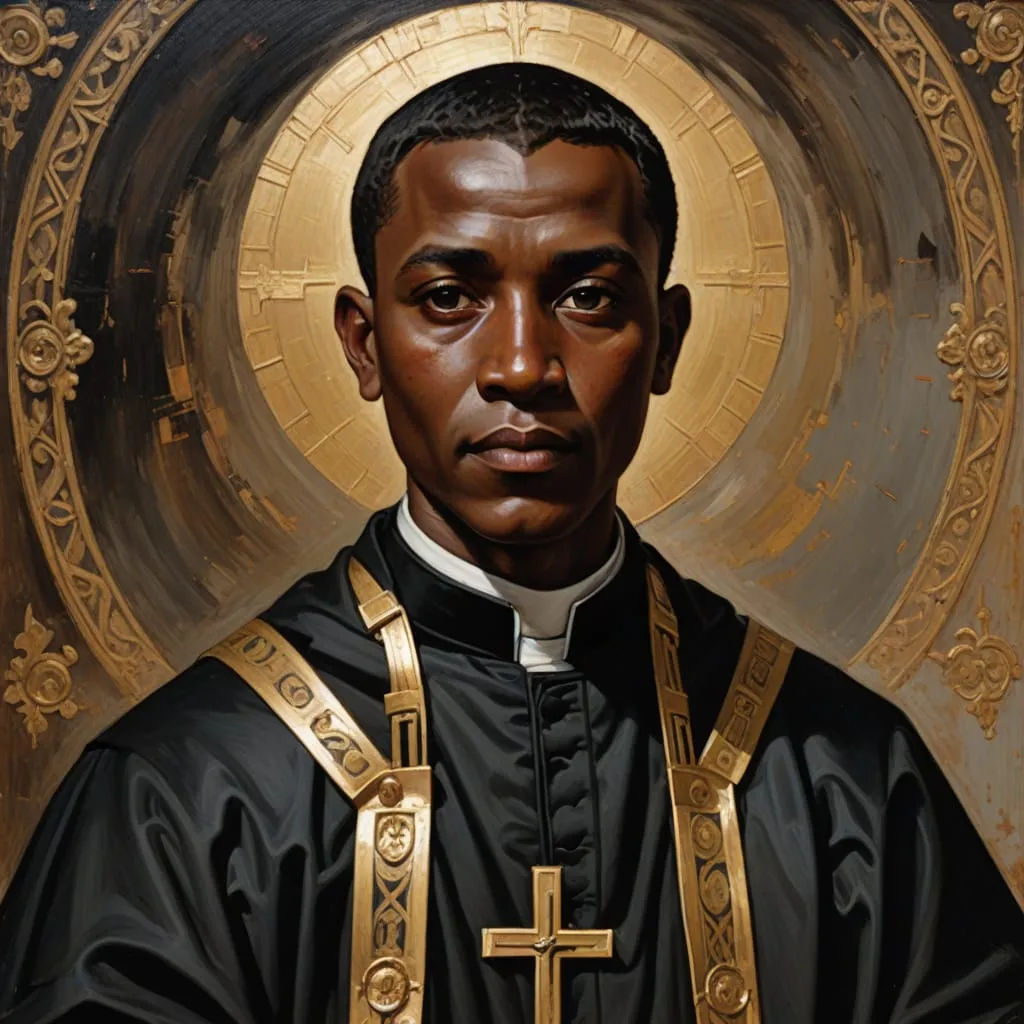
Martin was a close associate of Saint Juan Macías, a fellow Dominican lay brother, and Saint Rose of Lima, another distinguished lay member of the Dominican Order. Upon his passing on November 3, 1639, he earned widespread admiration and respect from both his religious counterparts and numerous individuals outside the priory. Reports of his miraculous deeds contributed to his reputation as a saint within the region. When his remains were publicly displayed to allow the community to pay their respects, many attendees took small portions of his habit as keepsakes or relics. Martin’s occasionally steadfast commitment to the principles of social justice strongly aligned with a church community striving to advance those ideals within the context of today’s contemporary society.
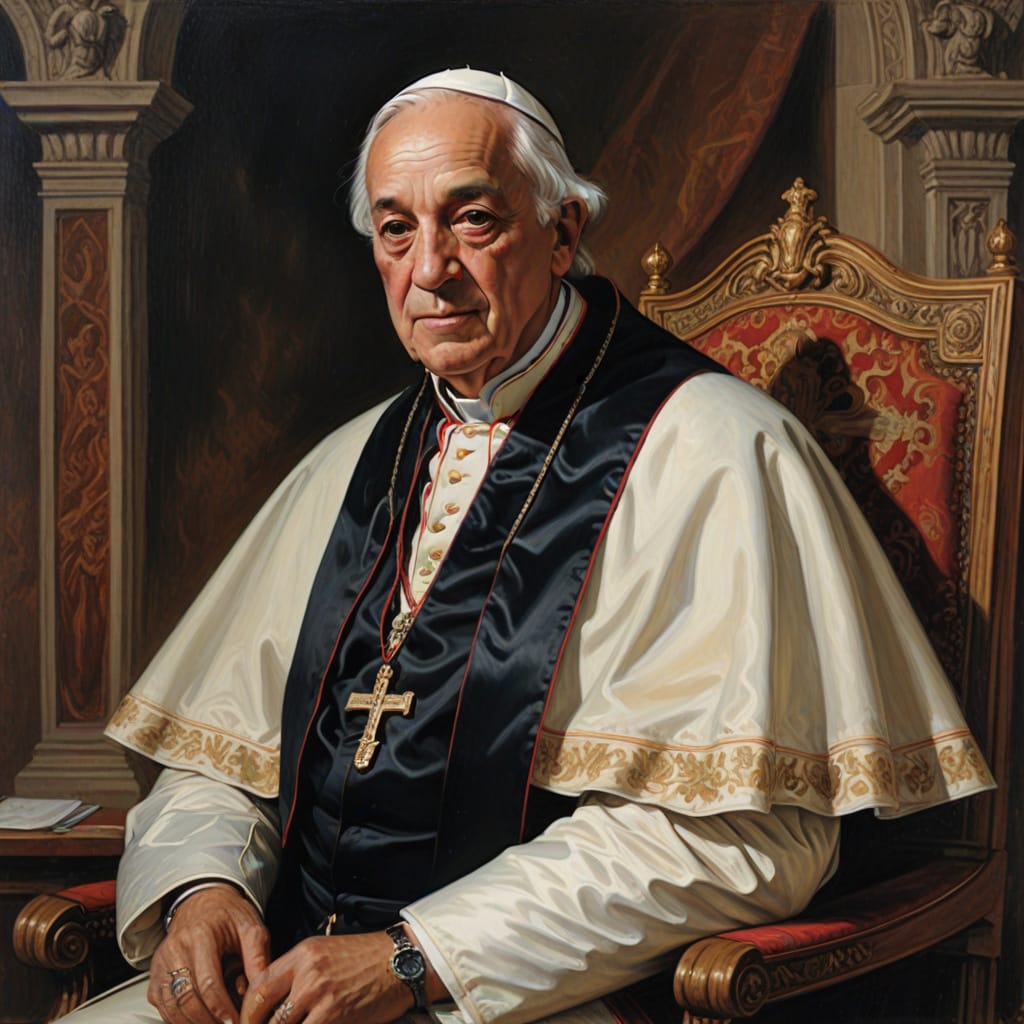
Following the exhumation of de Porres’s remains after 25 years, it was reported that his body remained remarkably intact and emitted a pleasant fragrance. Correspondence requesting his beatification was sent to Rome; in 1763, Pope Clement XIII issued a decree recognizing the heroic virtues he exemplified. Pope Gregory XVI formally beatified Martin de Porres on October 29, 1837, and the process for his canonization was initiated on June 8, 1926.
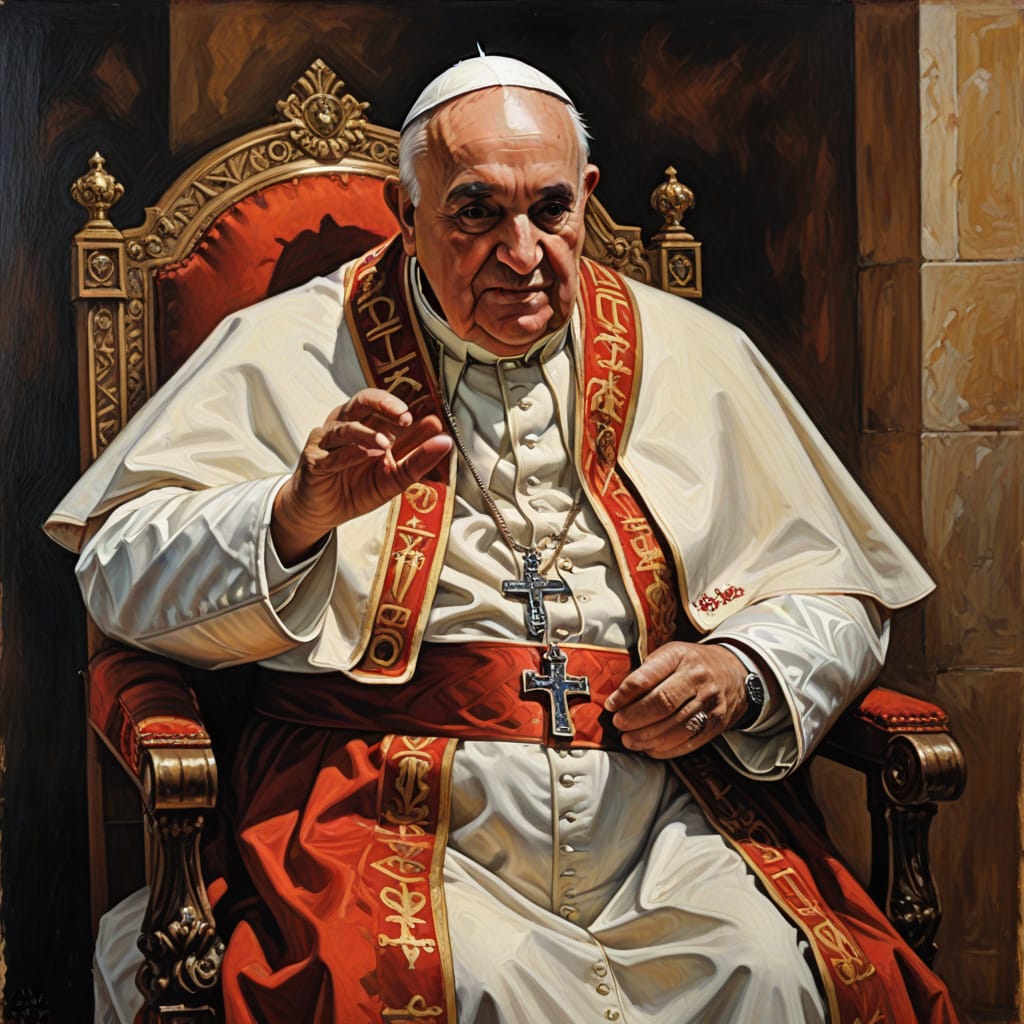
He was canonized by Pope John XXIII in Rome on May 6, 1962. Saint Martin de Porres is revered as the patron saint of individuals of mixed heritage, as well as of innkeepers, barbers, public health workers, and others. His feast day is observed on November 3 and is also recognized in the Church of England’s Calendar of Saints.